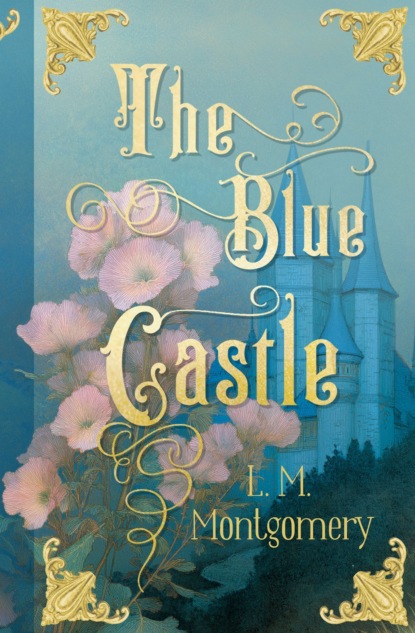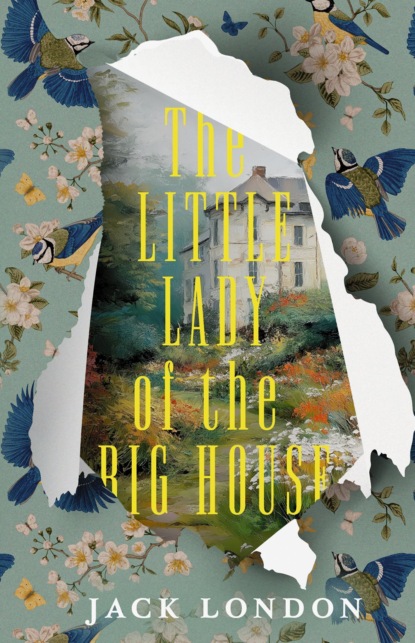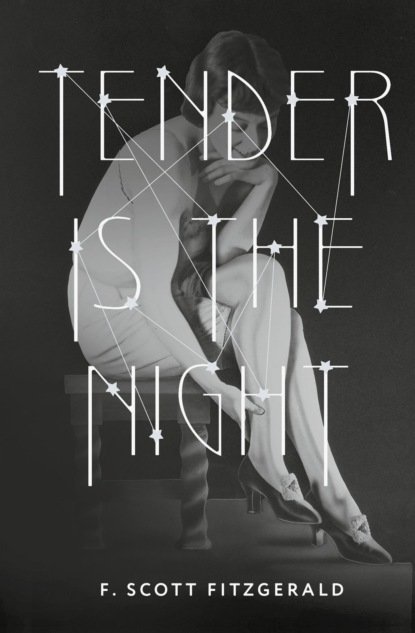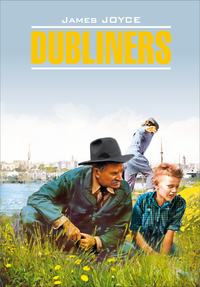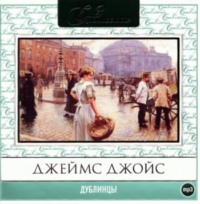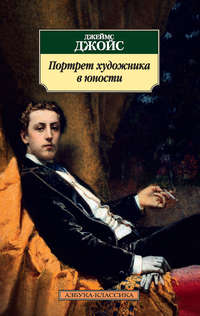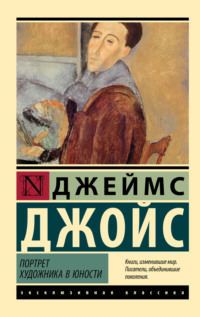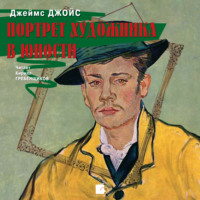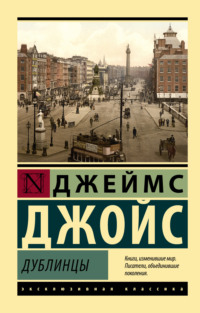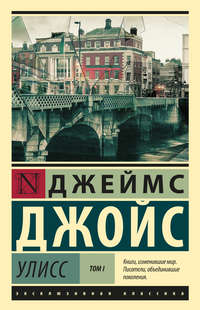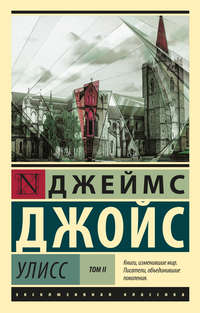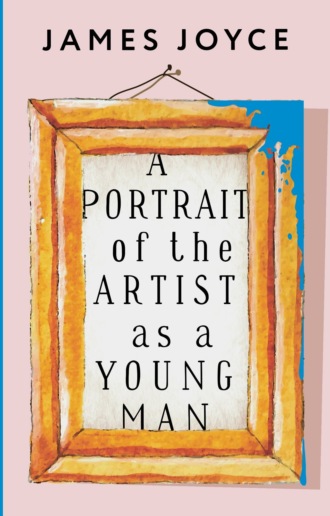
Полная версия
A Portrait of the Artist as a Young Man / Портрет художника в юности
And the train raced on over the flat lands and past the Hill of Allen. The telegraph poles were passing, passing. The train went on and on. It knew. There were lanterns in the hall of his father's house and ropes of green branches. There were holly and ivy round the pierglass and holly and ivy, green and red, twined round the chandeliers. There were red holly and green ivy round the old portraits on the walls. Holly and ivy for him and for Christmas.
Lovely…
All the people. Welcome home, Stephen! Noises of welcome. His mother kissed him. Was that right? His father was a marshal now: higher than a magistrate. Welcome home, Stephen!
Noises…
There was a noise of curtainrings running back along the rods, of water being splashed in the basins. There was a noise of rising and dressing and washing in the dormitory: a noise of clapping of hands as the prefect went up and down telling the fellows to look sharp. A pale sunlight showed the yellow curtains drawn back, the tossed beds. His bed was very hot and his face and body were very hot.
He got up and sat on the side of his bed. He was weak. He tried to pull on his stocking. It had a horrid rough feel. The sunlight was queer and cold.
Fleming said:
– Are you not well?
He did not know; and Fleming said:
– Get back into bed. I'll tell McGlade you're not well.
– He's sick.
– Who is?
– Tell McGlade.
– Get back into bed.
– Is he sick?
A fellow held his arms while he loosened the stocking clinging to his foot and climbed back into the hot bed.
He crouched down between the sheets, glad of their tepid glow. He heard the fellows talk among themselves about him as they dressed for mass. It was a mean thing to do, to shoulder him into the square ditch, they were saying.
Then their voices ceased; they had gone. A voice at his bed said:
– Dedalus, don't spy on us, sure you won't?
Wells's face was there. He looked at it and saw that Wells was afraid.
– I didn't mean to. Sure you won't?
His father had told him, whatever he did, never to peach on a fellow. He shook his head and answered no and felt glad.
Wells said:
– I didn't mean to, honour bright. It was only for cod. I'm sorry.
The face and the voice went away. Sorry because he was afraid. Afraid that it was some disease. Canker was a disease of plants and cancer one of animals: or another different. That was a long time ago then out on the playgrounds in the evening light, creeping from point to point on the fringe of his line, a heavy bird flying low through the grey light. Leicester Abbey lit up. Wolsey died there. The abbots buried him themselves.
It was not Wells's face, it was the prefect's. He was not foxing. No, no: he was sick really. He was not foxing. And he felt the prefect's hand on his forehead; and he felt his forehead warm and damp against the prefect's cold damp hand. That was the way a rat felt, slimy and damp and cold. Every rat had two eyes to look out of. Sleek slimy coats, little little feet tucked up to jump, black slimy eyes to look out of. They could understand how to jump. But the minds of rats could not understand trigonometry. When they were dead they lay on their sides. Their coats dried then. They were only dead things.
The prefect was there again and it was his voice that was saying that he was to get up, that Father Minister had said he was to get up and dress and go to the infirmary. And while he was dressing himself as quickly as he could the prefect said:
– We must pack off to Brother Michael because we have the collywobbles!
He was very decent to say that. That was all to make him laugh. But he could not laugh because his cheeks and lips were all shivery: and then the prefect had to laugh by himself.
The prefect cried:
– Quick march! Hayfoot! Strawfoot!
They went together down the staircase and along the corridor and past the bath. As he passed the door he remembered with a vague fear the warm turfcoloured bogwater, the warm moist air, the noise of plunges, the smell of the towels, like medicine.
Brother Michael was standing at the door of the infirmary and from the door of the dark cabinet on his right came a smell like medicine. That came from the bottles on the shelves. The prefect spoke to Brother Michael and Brother Michael answered and called the prefect sir. He had reddish hair mixed with grey and a queer look. It was queer that he would always be a brother. It was queer too that you could not call him sir because he was a brother and had a different kind of look. Was he not holy enough or why could he not catch up on the others?
There were two beds in the room and in one bed there was a fellow: and when they went in he called out:
– Hello! It's young Dedalus! What's up?
– The sky is up, Brother Michael said.
He was a fellow out of the third of grammar and, while Stephen was undressing, he asked Brother Michael to bring him a round of buttered toast.
– Ah, do! he said.
– Butter you up! said Brother Michael. You'll get your walking papers in the morning when the doctor comes.
– Will I? the fellow said. I'm not well yet.
Brother Michael repeated:
– You'll get your walking papers. I tell you.
He bent down to rake the fire. He had a long back like the long back of a tramhorse. He shook the poker gravely and nodded his head at the fellow out of third of grammar.
Then Brother Michael went away and after a while the fellow out of third of grammar turned in towards the wall and fell asleep.
That was the infirmary. He was sick then. Had they written home to tell his mother and father? But it would be quicker for one of the priests to go himself to tell them. Or he would write a letter for the priest to bring.
Dear Mother,
I am sick. I want to go home. Please come and take me home. I am in the infirmary.
Your fond son,
Stephen
How far away they were! There was cold sunlight outside the window. He wondered if he would die. You could die just the same on a sunny day. He might die before his mother came. Then he would have a dead mass in the chapel like the way the fellows had told him it was when Little had died. All the fellows would be at the mass, dressed in black, all with sad faces. Wells too would be there but no fellow would look at him. The rector would be there in a cope of black and gold and there would be tall yellow candles on the altar and round the catafalque. And they would carry the coffin out of the chapel slowly and he would be buried in the little graveyard of the community off the main avenue of limes. And Wells would be sorry then for what he had done. And the bell would toll slowly.
He could hear the tolling. He said over to himself the song that Brigid had taught him.
Dingdong! The castle bell!Farewell, my mother!Bury me in the old churchyardBeside my eldest brother.My coffin shall be black,Six angels at my back,Two to sing and two to prayAnd two to carry my soul away.How beautiful and sad that was! How beautiful the words were where they saidBury me in the old churchyard! A tremor passed over his body. How sad and how beautiful! He wanted to cry quietly but not for himself: for the words, so beautiful and sad, like music. The bell! The bell! Farewell! O farewell!
The cold sunlight was weaker and Brother Michael was standing at his bedside with a bowl of beeftea. He was glad for his mouth was hot and dry. He could hear them playing in the playgrounds. And the day was going on in the college just as if he were there.
Then Brother Michael was going away and the fellow out of the third of grammar told him to be sure and come back and tell him all the news in the paper. He told Stephen that his name was Athy and that his father kept a lot of racehorses that were spiffing jumpers and that his father would give a good tip to Brother Michael any time he wanted it because Brother Michael was very decent and always told him the news out of the paper they got every day up in the castle. There was every kind of news in the paper: accidents, shipwrecks, sports and politics.
– Now it is all about politics in the papers, he said. Do your people talk about that too?
– Yes, Stephen said.
– Mine too, he said.
Then he thought for a moment and said:
– You have a queer name, Dedalus, and I have a queer name too, Athy. My name is the name of a town. Your name is like Latin.
Then he asked:
– Are you good at riddles?
Stephen answered:
– Not very good.
Then he said:
– Can you answer me this one? Why is the county of Kildare like the leg of a fellow's breeches?
Stephen thought what could be the answer and then said:
– I give it up.
– Because there is a thigh in it, he said. Do you see the joke? Athy is the town in the county Kildare and a thigh is the other thigh.
– Oh, I see, Stephen said.
– That's an old riddle, he said.
After a moment he said:
– I say!
– What? asked Stephen.
– You know, he said, you can ask that riddle another way.
– Can you? said Stephen.
– The same riddle, he said. Do you know the other way to ask it?
– No, said Stephen.
– Can you not think of the other way? he said.
He looked at Stephen over the bedclothes as he spoke. Then he lay back on the pillow and said:
– There is another way but I won't tell you what it is.
Why did he not tell it? His father, who kept the racehorses, must be a magistrate too like Saurin's father and Nasty Roche's father. He thought of his own father, of how he sang songs while his mother played and of how he always gave him a shilling when he asked for sixpence and he felt sorry for him that he was not a magistrate like the other boys' fathers. Then why was he sent to that place with them? But his father had told him that he would be no stranger there because his granduncle had presented an address to the Liberator there fifty years before. You could know the people of that time by their old dress. It seemed to him a solemn time: and he wondered if that was the time when the fellows in Clongowes wore blue coats with brass buttons and yellow waistcoats and caps of rabbitskin and drank beer like grownup people and kept greyhounds of their own to course the hares with.
He looked at the window and saw that the daylight had grown weaker. There would be cloudy grey light over the playgrounds. There was no noise on the playgrounds. The class must be doing the themes or perhaps Father Arnall was reading out of the book.
It was queer that they had not given him any medicine. Perhaps Brother Michael would bring it back when he came. They said you got stinking stuff to drink when you were in the infirmary. But he felt better now than before. It would be nice getting better slowly. You could get a book then. There was a book in the library about Holland. There were lovely foreign names in it and pictures of strangelooking cities and ships. It made you feel so happy.
How pale the light was at the window! But that was nice. The fire rose and fell on the wall. It was like waves. Someone had put coal on and he heard voices. They were talking. It was the noise of the waves. Or the waves were talking among themselves as they rose and fell.
He saw the sea of waves, long dark waves rising and falling, dark under the moonless night. A tiny light twinkled at the pierhead where the ship was entering: and he saw a multitude of people gathered by the waters' edge to see the ship that was entering their harbour. A tall man stood on the deck, looking out towards the flat dark land: and by the light at the pierhead he saw his face, the sorrowful face of Brother Michael.
He saw him lift his hand towards the people and heard him say in a loud voice of sorrow over the waters:
– He is dead. We saw him lying upon the catafalque. A wail of sorrow went up from the people.
– Parnell! Parnell! He is dead!
They fell upon their knees, moaning in sorrow.
And he saw Dante in a maroon velvet dress and with a green velvet mantle hanging from her shoulders walking proudly and silently past the people who knelt by the water's edge.
A great fire, banked high and red, flamed in the grate and under the ivytwined branches of the chandelier the Christmas table was spread. They had come home a little late and still dinner was not ready: but it would be ready in a jiffy, his mother had said. They were waiting for the door to open and for the servants to come in, holding the big dishes covered with their heavy metal covers.
All were waiting: uncle Charles, who sat far away in the shadow of the window, Dante and Mr Casey, who sat in the easychairs at either side of the hearth, Stephen, seated on a chair between them, his feet resting on the toasted boss. Mr Dedalus looked at himself in the pierglass above the mantelpiece, waxed out his moustache ends and then, parting his coat tails, stood with his back to the glowing fire: and still from time to time he withdrew a hand from his coat tail to wax out one of his moustache ends. Mr Casey leaned his head to one side and, smiling, tapped the gland of his neck with his fingers. And Stephen smiled too for he knew now that it was not true that Mr Casey had a purse of silver in his throat. He smiled to think how the silvery noise which Mr Casey used to make had deceived him. And when he had tried to open Mr Casey's hand to see if the purse of silver was hidden there he had seen that the fingers could not be straightened out: and Mr Casey had told him that he had got those three cramped fingers making a birthday present for Queen Victoria. Mr Casey tapped the gland of his neck and smiled at Stephen with sleepy eyes: and Mr Dedalus said to him:
– Yes. Well now, that's all right. O, we had a good walk, hadn't we, John? Yes… I wonder if there's any likelihood of dinner this evening. Yes… O, well now, we got a good breath of ozone round the Head today. Ay, bedad.
He turned to Dante and said:
– You didn't stir out at all, Mrs Riordan?
Dante frowned and said shortly:
– No.
Mr Dedalus dropped his coat tails and went over to the sideboard. He brought forth a great stone jar of whisky from the locker and filled the decanter slowly, bending now and then to see how much he had poured in. Then replacing the jar in the locker he poured a little of the whisky into two glasses, added a little water and came back with them to the fireplace.
– A thimbleful, John, he said, just to whet your appetite.
Mr Casey took the glass, drank, and placed it near him on the mantelpiece. Then he said:
– Well, I can't help thinking of our friend Christopher manufacturing…
He broke into a fit of laughter and coughing and added:
– …manufacturing that champagne for those fellows.
Mr Dedalus laughed loudly.
– Is it Christy? he said. There's more cunning in one of those warts on his bald head than in a pack of jack foxes.
He inclined his head, closed his eyes, and, licking his lips profusely, began to speak with the voice of the hotel keeper.
– And he has such a soft mouth when he's speaking to you, don't you know. He's very moist and watery about the dewlaps, God bless him.
Mr Casey was still struggling through his fit of coughing and laughter. Stephen, seeing and hearing the hotel keeper through his father's face and voice, laughed.
Mr Dedalus put up his eyeglass and, staring down at him, said quietly and kindly:
– What are you laughing at, you little puppy, you?
The servants entered and placed the dishes on the table. Mrs Dedalus followed and the places were arranged.
– Sit over, she said.
Mr Dedalus went to the end of the table and said:
– Now, Mrs Riordan, sit over. John, sit you down, my hearty.
He looked round to where uncle Charles sat and said:
– Now then, sir, there's a bird here waiting for you.
When all had taken their seats he laid his hand on the cover and then said quickly, withdrawing it:
– Now, Stephen.
Stephen stood up in his place to say the grace before meals:
Bless us, O Lord, and these Thy gifts which through Thy bounty we are about to receive through Christ our Lord. Amen.
All blessed themselves and Mr Dedalus with a sigh of pleasure lifted from the dish the heavy cover pearled around the edge with glistening drops.
Stephen looked at the plump turkey which had lain, trussed and skewered, on the kitchen table. He knew that his father had paid a guinea for it in Dunn's of D'Olier Street and that the man had prodded it often at the breastbone to show how good it was: and he remembered the man's voice when he had said:
– Take that one, sir. That's the real Ally Daly.
Why did Mr Barrett in Clongowes call his pandybat a turkey? But Clongowes was far away: and the warm heavy smell of turkey and ham and celery rose from the plates and dishes and the great fire was banked high and red in the grate and the green ivy and red holly made you feel so happy and when dinner was ended the big plum pudding would be carried in, studded with peeled almonds and sprigs of holly, with bluish fire running around it and a little green flag flying from the top.
It was his first Christmas dinner and he thought of his little brothers and sisters who were waiting in the nursery, as he had often waited, till the pudding came. The deep low collar and the Eton jacket made him feel queer and oldish: and that morning when his mother had brought him down to the parlour, dressed for mass, his father had cried. That was because he was thinking of his own father. And uncle Charles had said so too.
Mr Dedalus covered the dish and began to eat hungrily. Then he said:
– Poor old Christy, he's nearly lopsided now with roguery.
– Simon, said Mrs Dedalus, you haven't given Mrs Riordan any sauce.
Mr Dedalus seized the sauceboat.
– Haven't I? he cried. Mrs Riordan, pity the poor blind.
Dante covered her plate with her hands and said:
– No, thanks.
Mr Dedalus turned to uncle Charles.
– How are you off, sir?
– Right as the mail, Simon.
– You, John?
– I'm all right. Go on yourself.
– Mary? Here, Stephen, here's something to make your hair curl.
He poured sauce freely over Stephen's plate and set the boat again on the table. Then he asked uncle Charles was it tender. Uncle Charles could not speak because his mouth was full but he nodded that it was.
– That was a good answer our friend made to the canon. What? said Mr Dedalus.
– I didn't think he had that much in him, said Mr Casey.
– I'll pay your dues, father, when you cease turning the house of God into a polling-booth.
– A nice answer, said Dante, for any man calling himself a catholic to give to his priest.
– They have only themselves to blame, said Mr Dedalus suavely. If they took a fool's advice they would confine their attention to religion.
– It is religion, Dante said. They are doing their duty in warning the people.
– We go to the house of God, Mr Casey said, in all humility to pray to our Maker and not to hear election addresses.
– It is religion, Dante said again. They are right. They must direct their flocks.
– And preach politics from the altar, is it? asked Mr Dedalus.
– Certainly, said Dante. It is a question of public morality. A priest would not be a priest if he did not tell his flock what is right and what is wrong.
Mrs Dedalus laid down her knife and fork, saying:
– For pity sake and for pity sake let us have no political discussion on this day of all days in the year.
Конец ознакомительного фрагмента.
Текст предоставлен ООО «Литрес».
Прочитайте эту книгу целиком, купив полную легальную версию на Литрес.
Безопасно оплатить книгу можно банковской картой Visa, MasterCard, Maestro, со счета мобильного телефона, с платежного терминала, в салоне МТС или Связной, через PayPal, WebMoney, Яндекс.Деньги, QIWI Кошелек, бонусными картами или другим удобным Вам способом.


